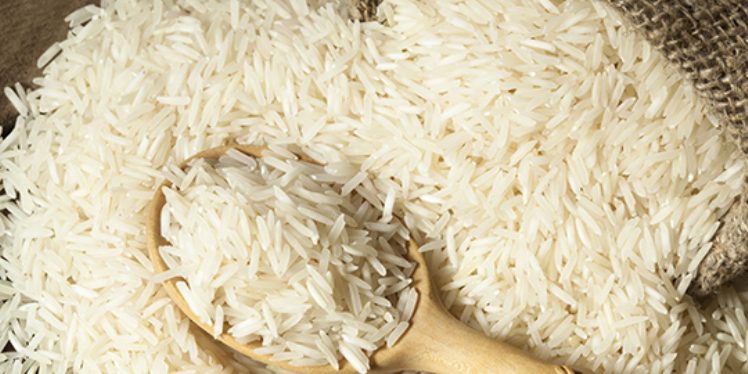The Chennai-based Geographical Indications (GI) Registry’s order in mid-March to exclude Madhya Pradesh from the area officially declared for the cultivation of the aromatic and widely consumed basmati rice, both by the domestic users as also the overseas aficionados, has predictably raised a lot of questions and hackles. Here’s a report, for Different Truths.
The Chennai-based Geographical Indications (GI) Registry’s order in mid-March to exclude Madhya Pradesh from the area officially declared for cultivation of the aromatic and widely consumed basmati rice, both by the domestic users as also the overseas aficionados, has predictably raised a lot of questions and hackles than it answered in explaining what constitutes popular perceptions in the usage of GI tags on a product that has more than geography in terms of aesthetics, aromatic standards, and consumer satisfaction!
No sooner the order came than an exasperated rice mill owner in the state aired their resentment by stating that while the BJP party rules both in the Centre and in the State, the interests of the state basmati paddy growers were implacably ill-served. The ire is understandable because the petition against inclusion of MP as basmati rice-producing state came from rice-miller exporters and farmer bodies in Punjab and Haryana along with two state governments backed by the export promotion agency of the Agricultural and Processed Foods Export Development Authority (APEDA), a statutory body under the Union Ministry of Commerce & Industry, even as the State government of MP challenged this plea in all its earnest efforts. For the BJP government in both the Centre and the State, the ruling has come at the worst moment when the pan-India party was battling against the burgeoning perception that it is anti-farmer and anti-rural in its bigger canvas for the Vikas of the country!
“It is interesting to note why APEDA is opposing the MP government’s claim for a GI tag for its basmati. The fact remains that both the central and state government are run by the same party”, Anil Agarwal, director of a leading agro-industry in MP, was on the record. He claimed that MP produced around 11 lakh metric tonne of basmati rice in the last financial year, even as officials claim that production is just close to 4 lakh metric tonnes. But, even by conservative estimates, if production is 4 lakh metric tonne, it meant a turnover of roughly Rs. 1,100 crore.
Already, in the absence of the GI tag, MP farmers had been getting lower prices for their basmati paddy at Rs 2,600-2,700 per quintal while in Haryana and Punjab, the same paddy is being sold at around Rs 3,200-3,300 per quintal. With this ruling against basmati rice production to qualify GI tags, sceptics wonder whether the state’s iconic fruit such as organs, Kalimuch rice of Balaghat and a host of other agricultural products would ever get the GI tags even though these products are high in popular perception for their heritage association, tang, and tenor of the terroir in which they have been grown down the ages.
Even as the state government is urged to go and appeal before the Intellectual Property Appellate Board (IPAB), which is the appellate body against GI Registry, as soon as possible by marshalling proper evidence, the delay or denial to MP its basmati tag will have adverse impact on the agro-economy of the state and in the fortunes of farmers in 13 districts of the state, who grow and ply in this premium rice. Interestingly, the same GI Registry favoured the state’s claim in 2013, which was then opposed by APEDA in IPAB. Oddly, today the same GI Registry pronounced a ruling against the inclusion of the State under the plea of a clutch of mill-owners backed by the APEDA! This somersault among stakeholders and the regulators puzzles neutral observers and policy wonks instead of giving them any clarity on the issues raised and analysed.
Geographical Indications, as defined in the WTO Trade-Related Intellectual Properties Agreement (TRIPs), are identifications of the country or region where the quality, reputation or other characteristic of a product are essentially attributable to the geographical region. Additional protection of GIs already exists for wines and spirits (e.g. Champagne, Bordeaux and Cognac), and some countries (mainly Asia, Europe and Africa) are calling for this protection to be extended to other products (e.g. Basmati rice, Darjeeling tea or Camembert cheese). Some believe that by giving value to biological resources, GIs can provide a fillip to preserve native varieties, the environment in which the respective resources are grown, and the traditional knowledge associated with them. Others, however, are concerned and chary that GIs will only bring new obligations for developing countries while the benefits will mainly go to developed countries that are better prepared at the national level to take advantage of GI extensions and that might use GIs as a trade barrier against developing countries’ exports.
As this debate among the members of the WTO rages on interminably, it would be futile among stakeholders within a country to oppose GI tags for their own specialty products purely actuated by commercial considerations. This is particularly so when there are as many as 29 varieties of basmati rice being supplied to the global markets not only to non-resident Indians but also to the discriminating palates of gourmets and epicureans who consume the finest varieties of farm produce including rice. One should reckon the fact that traditional basmati rice varieties are photo-sensitive and difficult to grow in other regions, whereas the evolved or improved basmati ones do not contain such features. Still, Indian basmati rice of all hues gets exported sans GI tags as supply engenders its own demand in consonance with Say’s law! There are no data on traditional basmati rice variety cultivation in MP to scan whether terroir theory fits in even as there was established the record that among the 13 districts a few did fall in the Indo-Gangetic Plains!
In a forthcoming well-researched book on: The Basmati Grammar, A Journey through Geo-bio Politics, trade policy analyst, S.Chandrasekaran said that the GI Registry’s recent ruling should make the applicant and other traditional growing area governments to imbibe the implicit observations so as to build bulwarks against their heritage products from being challenged. He argued that new technology such as artificial intelligence and algorithm hold wider implications and ramifications on the future of traditional products. Further, he is of the view that climate change and Indus Water Treaty play a key role in geopolitical strategies on basmati, intellectual property rights and Indo-Pak relations as the latter also claims ownership of basmati in a global forum.
As India and China boast of traditional medicines and herbal products the onus lay with them in beefing up their GI registration machinery with failure-proof systems and processes so that no challenge can be held against the heritage value of their hoary products. It is time that the indigenous GI Registry focused on the many other great heritage products as it had only given GI tags to a few 300 odd products unlike the U.S and the Middle Kingdom which had given a few thousands of GI tags to their own heritage goods.
G. Srinivasan
©IPA Service
Photo from the Internet





 By
By

 By
By
 By
By